Child-Centered Montessori Based Learning: The Future of Education
Montessori based learning is an educational approach that puts the child at the center of the learning process. Developed by the Italian physician Maria Montessori over a century ago, this method has been gaining popularity as more parents seek alternatives to traditional schooling. In this blog post, we’ll explore what makes Montessori unique and why it represents the future of education.
What is Montessori Based Learning?
Montessori education flips the script on traditional learning. Instead of a teacher-directed approach, children take center stage, driven by their natural curiosity. Forget rows of desks – Montessori classrooms hum with activity as children explore hands-on materials, working independently or collaborating in small groups. The teacher acts as a supportive guide, observing and nurturing each child’s unique learning journey.
Key Principles of Montessori
The Montessori Method emphasizes several key aspects:
- Respect for the child’s natural desire to learn
- Absorbent mind effortlessly soaks up knowledge
- Sensitive periods for optimal learning
- Carefully prepared learning environment
- Auto-education through self-correcting materials
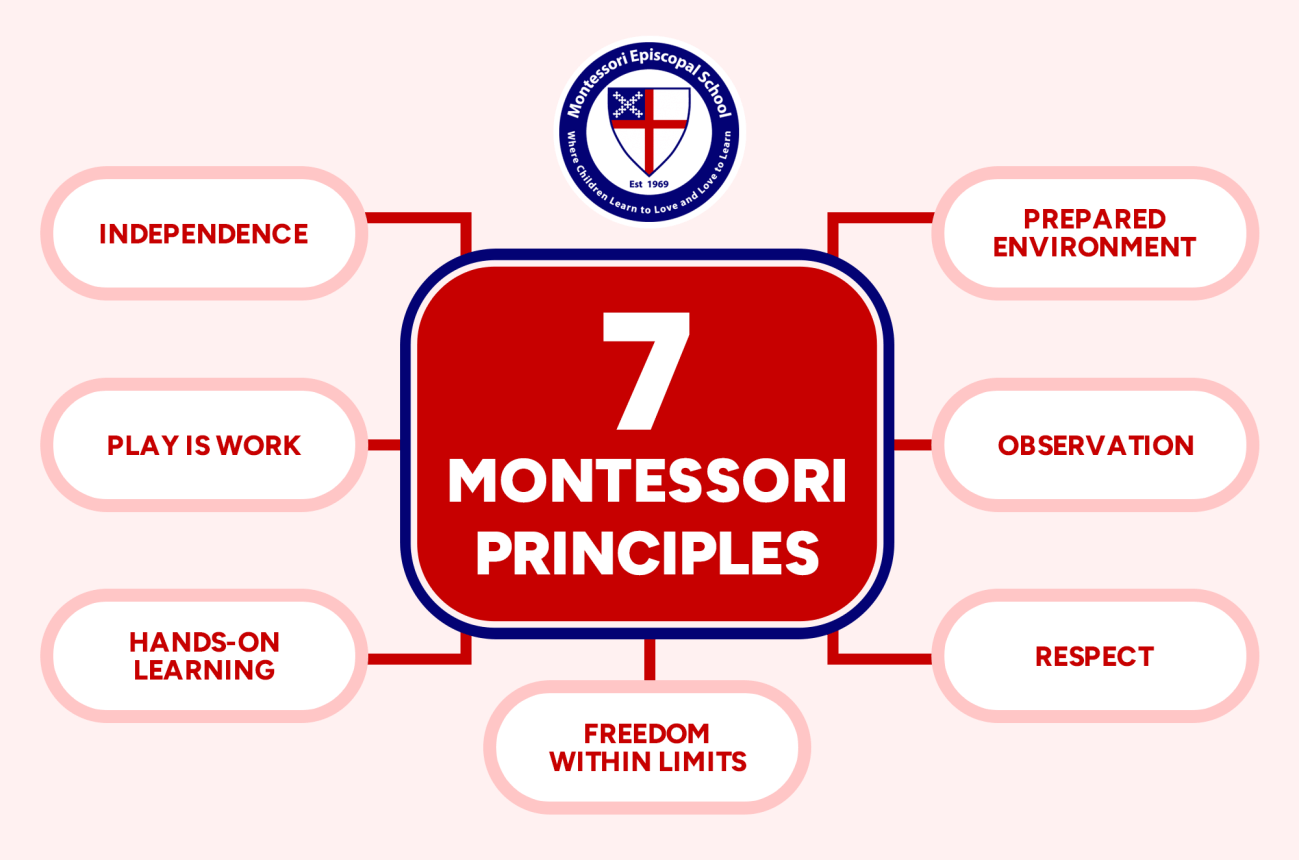
How Montessori Based Learning Benefits Children
Numerous studies highlight the advantages of Montessori based learning for children. Here are some key benefits:
- Builds independence and self-motivation: Montessori kids learn to take charge of their own learning. They set goals, manage their time, and find joy in the process.
- Enhances social skills: Mixed-age Montessori classrooms create a family-like community. Older children naturally help younger ones, fostering empathy and collaboration. Conflict resolution is modeled and practiced.
- Encourages creativity and critical thinking: Montessori materials spark children’s curiosity and problem-solving skills. They can explore, analyze, and come up with unique solutions, as there’s no single ‘correct’ answer.
- Develops concentration: By offering uninterrupted time to engage with chosen tasks, Montessori education fosters a child’s ability to be fully present in the moment and block out distractions.
- Nurtures a lifelong love of learning: By following their interests and learning at their own pace, Montessori children see education as a joyful discovery, not a chore.
Montessori Education & Child Centered Learning
At the heart of the Montessori method is a profound respect for each individual child. Montessori is the ultimate form of child centered learning because it tailors the education to the unique needs, interests, and developmental stage of each child.
In a Montessori classroom, children are not expected to all learn the same things at the same pace. Instead, the teacher observes each child closely and guides them towards activities that will challenge them just the right amount. This individualized approach ensures that each child is always working at their own cutting edge of growth.
Following the child’s lead also means giving them control over their learning. Montessori children have the freedom to choose what to work on, who to work with, and how long to spend on each activity. This autonomy builds intrinsic motivation and self-regulation skills. Children learn to take charge of their own education, setting the stage for a lifetime of self-directed learning.
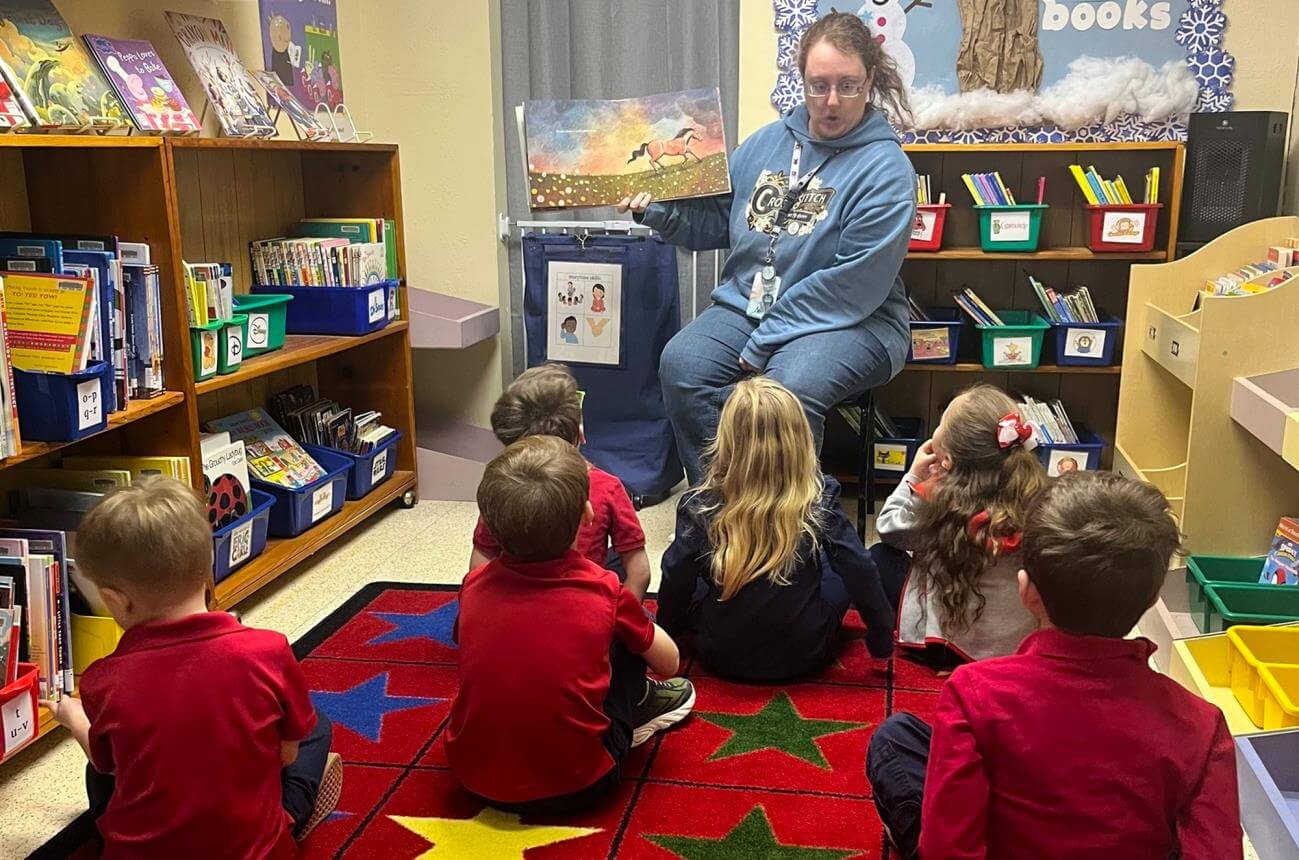
Montessori & Play Based Learning
Montessori classrooms transform playtime into a powerful learning tool. Forget segregated learning periods – play is the primary way children engage with concepts. The carefully designed materials are so inviting that children are naturally drawn to explore them.
Each one acts as a playful gateway to a specific skill or concept. Take the Pink Tower, for instance. It is not just a block set; it is a hands-on introduction to size comparison, dimension, and even foundational math.
This joyful, interactive approach makes learning feel effortless. Children aren’t passive recipients of information; they’re active explorers, uncovering knowledge for themselves. They grasp concepts on a deeper level, understanding how things truly work. That is the essence of Montessori learning through play – a natural, engaging journey that ignites a child’s curiosity and empowers them to make sense of the world around them.
Understanding Montessori Style Learning
What exactly does Montessori style learning look like? To the untrained eye, a Montessori classroom may appear unstructured, with children moving freely between activities. However, there is actually a great deal of intentional structure underlying the child-directed flow.
The physical classroom is carefully designed into curriculum areas, with materials progressing from simple to complex. The daily schedule alternates from blocks of uninterrupted work time and small group lessons to large group gatherings. Grace and courtesy lessons help children learn how to move and interact peacefully.
Within this “prepared environment,” children engage in a variety of learning experiences such as independent problem-solving and cooperative projects. They learn not just academic skills but practical life skills like cleaning, food preparation, and conflict resolution. They also have ample opportunities to develop creativity through art, music, and imaginative play.
This approach goes beyond academics. It cultivates the whole child – cognitive, physical, social, and emotional development. Montessori education equips children for success in all aspects of life, making this time-tested approach even more relevant in our rapidly changing world.
Bringing Montessori Home
You don’t have to send your child to a Montessori school to enjoy the benefits. Try these tips to create a Montessori-friendly home:
- Prepare the environment: Set up accessible shelves with a rotating selection of developmentally appropriate toys and books. Less is more – a clutter-free space promotes focus.
- Foster independence: Look for ways to enable your child to do things for themselves, like pouring their own drink, washing their hands, or slicing a banana. Provide child-sized tools and step stools.
- Follow the child: Notice what sparks your child’s curiosity and create opportunities for them to explore further. Ask questions and wonder aloud rather than jumping in with answers.
- Embrace natural consequences: When possible, allow your child to experience the consequences of their choices. Forgot to bring their raincoat? Getting wet will teach them to remember next time.
- Limit screen time: Encourage plenty of hands-on, real-world play and exploration instead of relying on screens for entertainment. Time in nature is especially valuable.
Montessori & the Changing World
Our world is changing fast, and the skills needed for success are evolving. Many experts believe the traditional education model is outdated and not preparing children adequately for the future. In contrast, Montessori based learning fosters the very capabilities that will be most valued in the 21st century – creativity, critical thinking, communication, collaboration, flexibility, and initiative.
By allowing children to be active agents in their learning from an early age, Montessori plants the seeds for a lifetime of engaged learning and problem-solving. The mixed-age classrooms and emphasis on social-emotional skills promote teamwork and leadership. And opportunities for self-direction and independent time management prepare kids for the increasingly autonomous workplaces of the future.
As more parents and policymakers recognize the need for education to evolve, interest in Montessori is surging. New Montessori schools are opening worldwide, and Montessori principles are being integrated into mainstream classrooms.
Some challenges remain to making Montessori accessible to all children. Authentic Montessori teacher training is intensive, and Montessori materials can be costly, limiting the spread of Montessori into under-resourced communities. However, efforts are underway to increase access through scholarships, public funding, and material lending libraries.
Another hurdle is shifting perceptions of what education “should” look like. Montessori doesn’t fit the mold of desks, workbooks, and standardized tests familiar to most adults. It requires trusting children more and teachers less. However, as more Montessori children grow into capable, fulfilled adults, perceptions are changing.
The Future is Bright with Montessori Based Learning
Montessori education sows the seeds of potential within each child, preparing them to face life’s challenges with confidence and a thirst for knowledge. It’s a special approach, nourishing the mind, body, and spirit, allowing each unique individual to blossom from the inside out.
Perhaps the most precious gift Montessori offers is the preservation of a child’s inherent love of learning. Every child is born with a burning curiosity, a desire to understand the world. Traditional methods can sometimes act like a dampener on this spark. But in Montessori classrooms, that spark is cherished. Children are encouraged to ask questions, explore their passions, and learn through hands-on exploration.
As Montessori philosophy gains momentum, its transformative impact reaches more children. Imagine a future where a generation thrives on the joy of discovery, free from the pressure of grades. These children will bring a wellspring of innovation and a spirit of problem-solving to the world. They’ll find work that fuels their passions, and their adaptability will allow them to navigate a world in constant flux.
Our Montessori School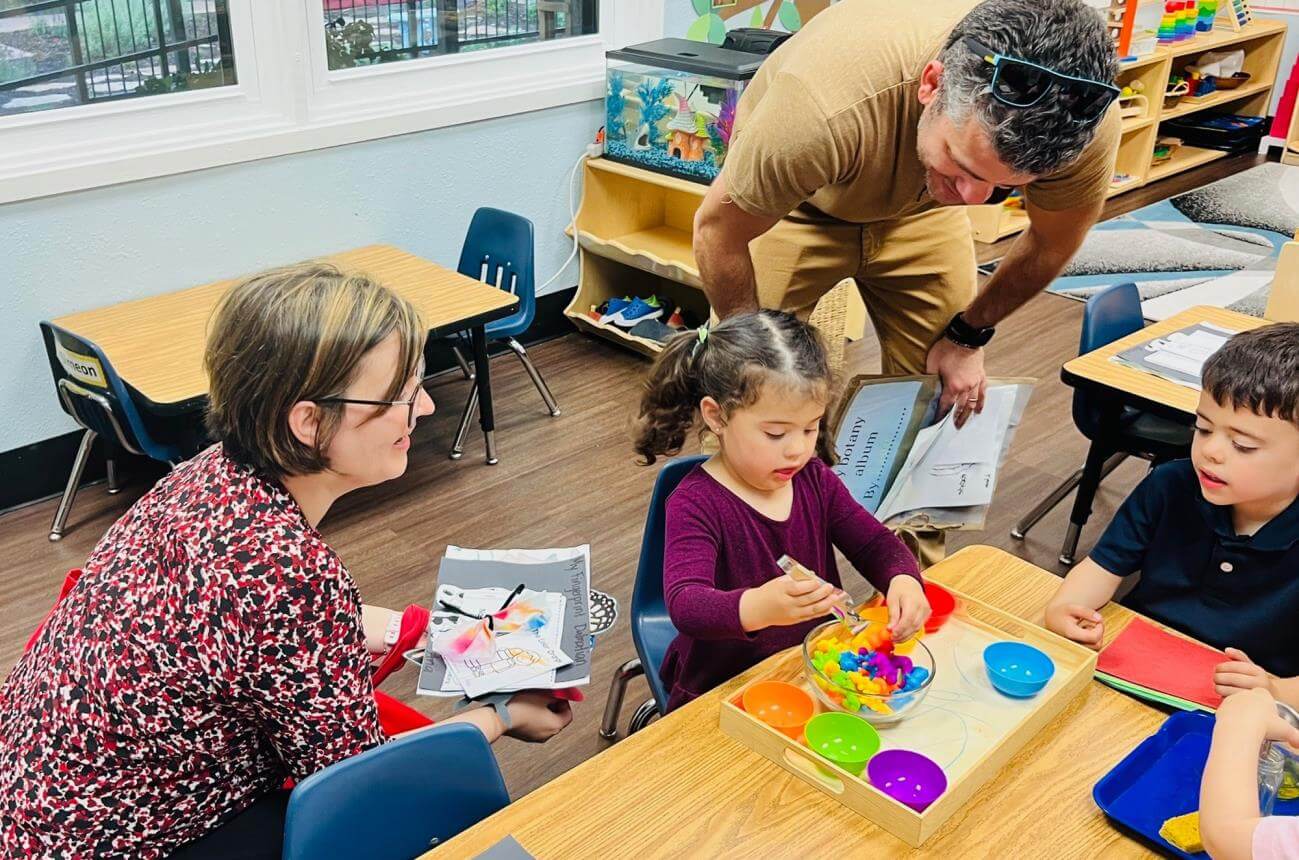
At Montessori Episcopal School, we are proud to be the only Christian Montessori school in Denton County, Texas. For over 50 years, we have been providing a unique, child-centered learning experience that combines the best of Montessori education with the Episcopal tradition.
Our dedicated teachers, who have a combined 100+ years of experience, create a nurturing environment where each child’s natural curiosity and love of learning can flourish. We offer programs for toddlers through kindergarten, focusing on individualized instruction, hands-on learning, and a well-rounded curriculum that includes weekly classes in library, art, PE, music, and Spanish.
As an Episcopal school, we also provide biblical training through weekly chapel services, helping children develop strong moral foundations and a sense of community. Our goal is to educate the whole child – mind, body, and spirit – preparing them for success not just in school but in life.
If you’re looking for a Montessori school in the Lewisville, Flower Mound, or Highland Village areas that will nurture your child’s independence, creativity, and love of learning, we invite you to have a look at what we offer. Schedule a tour today and see why families have chosen us for generations.
Conclusion
In short, Montessori based learning offers a child-centered approach that nurtures curiosity, creativity, and a lifelong love of learning. As our world changes, Montessori’s emphasis on independence, critical thinking, and adaptability prepares children for a bright future. It’s an educational model that trusts and empowers children to reach their full potential.
Frequently Asked Questions
What makes Montessori education different from traditional schooling?
Montessori education is child-centered, with kids learning through hands-on exploration. Teachers guide and support individual learning journeys. Traditional classrooms often have desks in rows, with the teacher directing the learning process.
How does Montessori based learning benefit children’s development?
Montessori based learning builds independence, enhances social skills, and encourages creativity. Children follow their interests and learn at their own pace. This helps them become confident, self-directed learners.
Can Montessori principles be applied at home?
Yes! Parents can create a Montessori-friendly home by setting up accessible shelves with age-appropriate materials. They can foster independence in daily tasks and follow their child’s interests. Limiting screen time in favor of hands-on experiences is also helpful.
How does Montessori based learning prepare children for the future?
Montessori develops key skills like creativity, critical thinking, and collaboration. It encourages children to be active learners from an early age. The focus on social-emotional skills and adaptability prepares kids for success in our changing world.
What sets Montessori Episcopal School apart from other preschools?
Montessori Episcopal School is the only Christian Montessori school in Denton County. It combines Montessori education with Episcopal tradition. The school offers a nurturing environment, experienced teachers, and a well-rounded curriculum for toddlers through kindergarten.
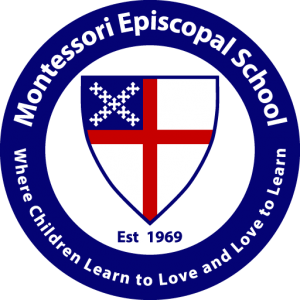
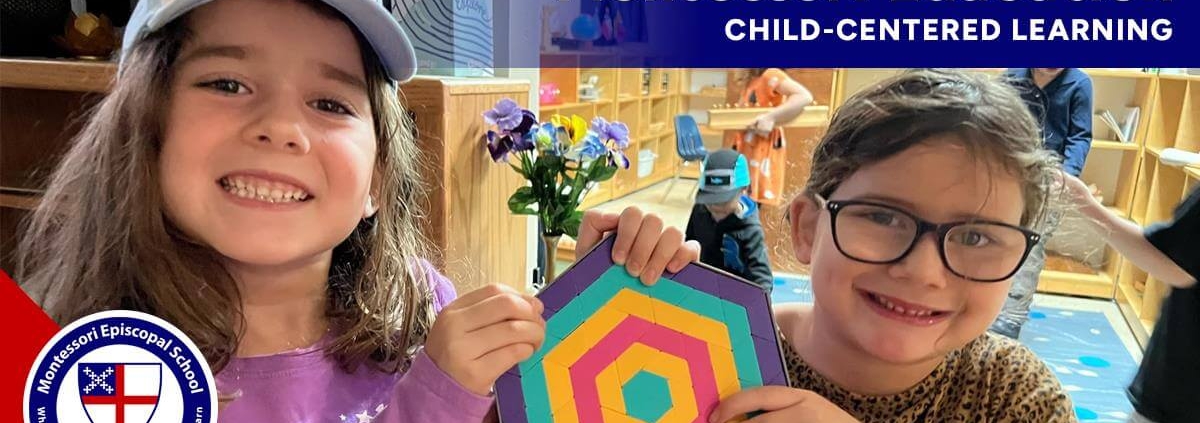
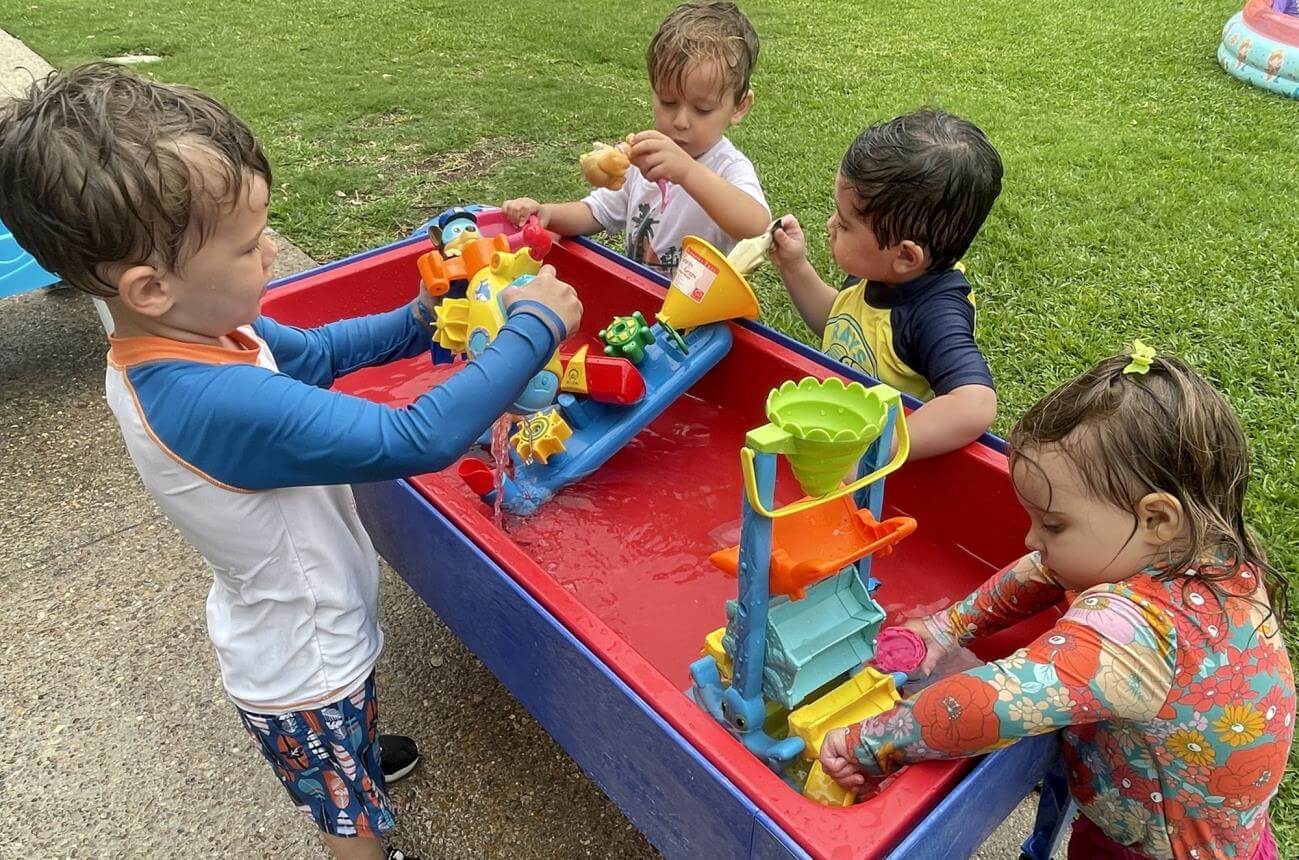
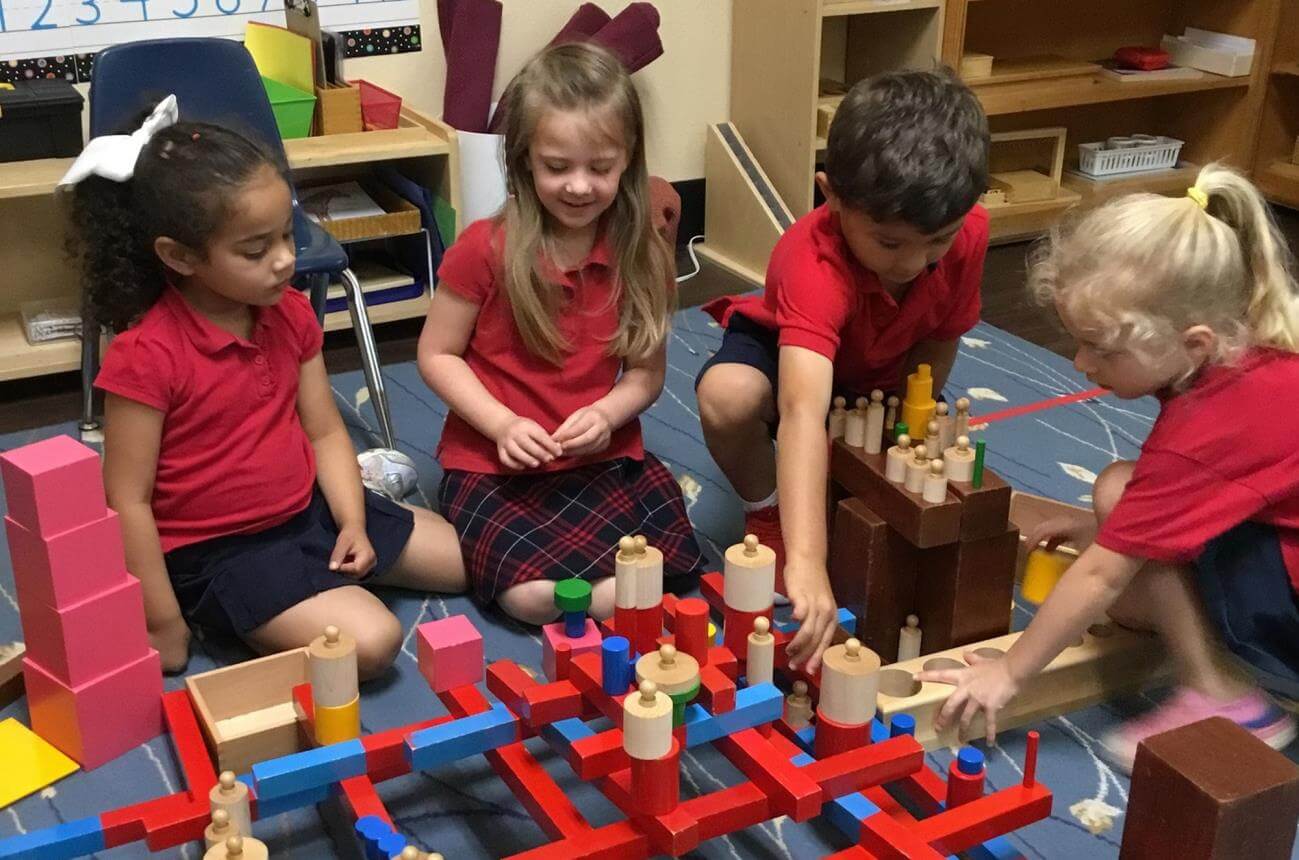



Leave a Reply
Want to join the discussion?Feel free to contribute!